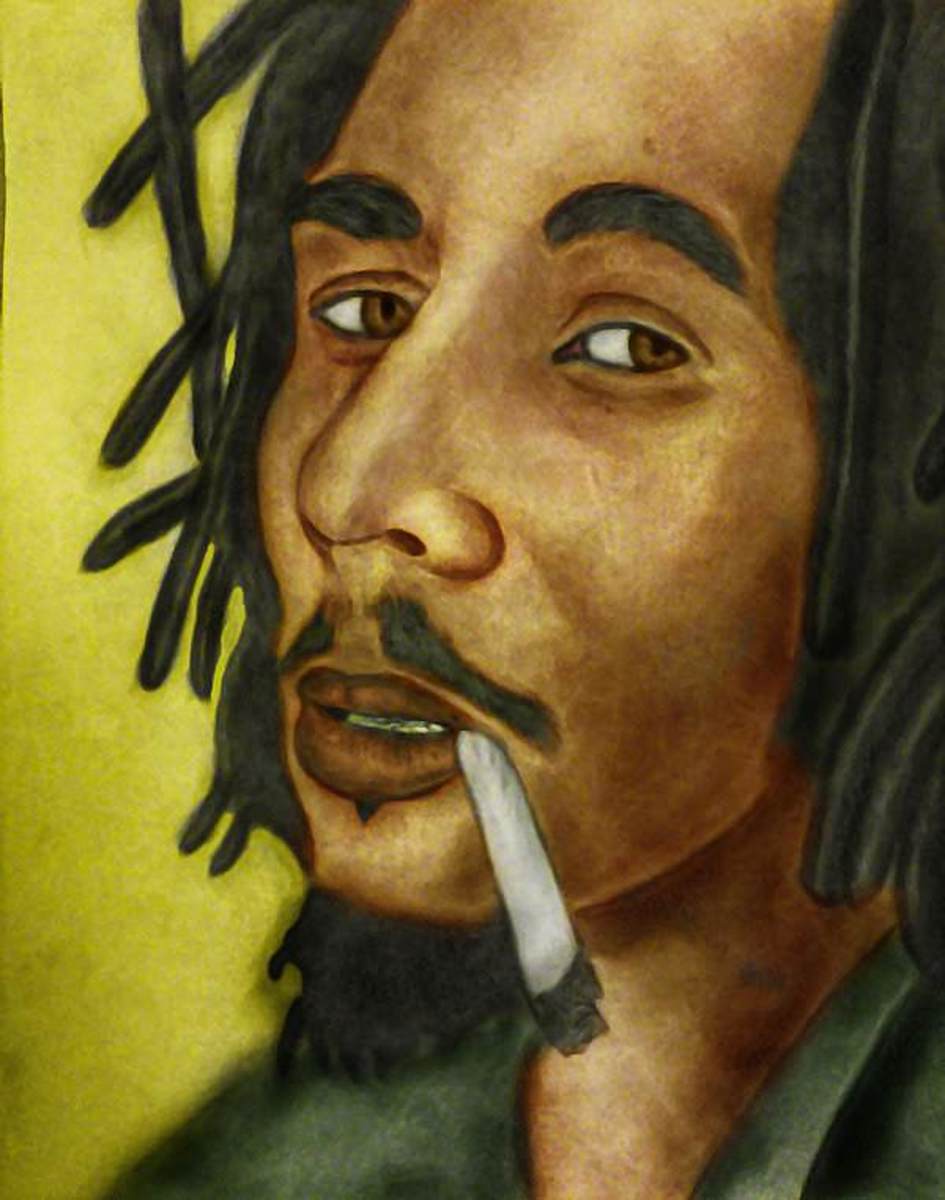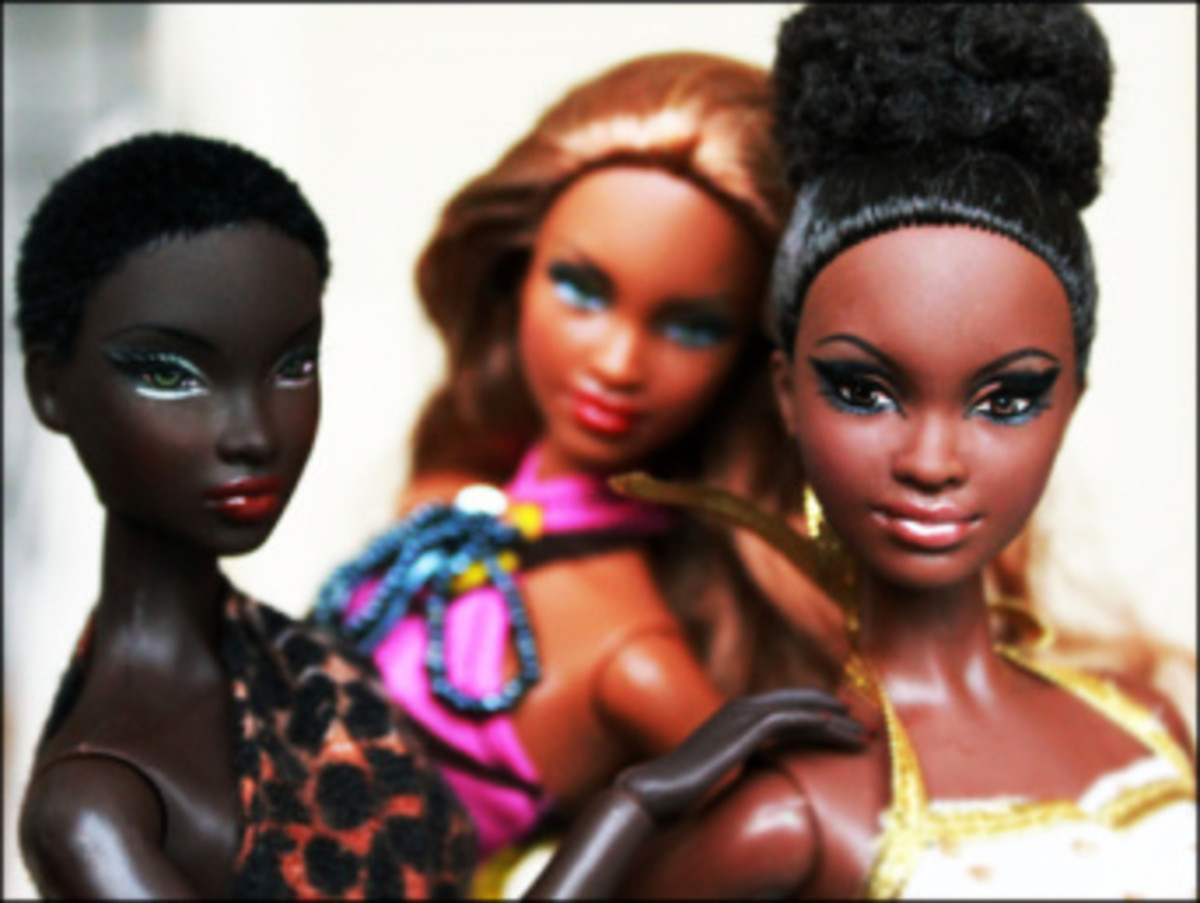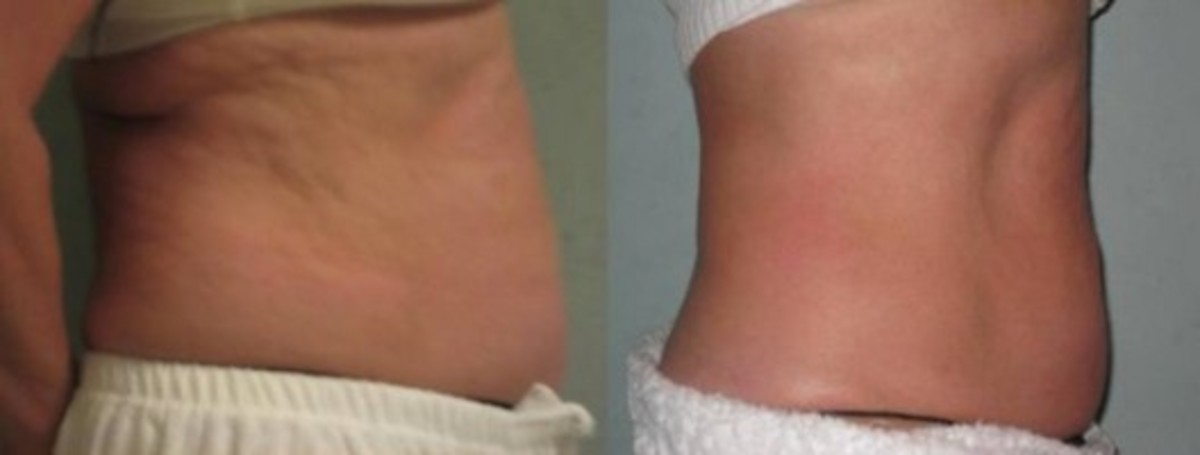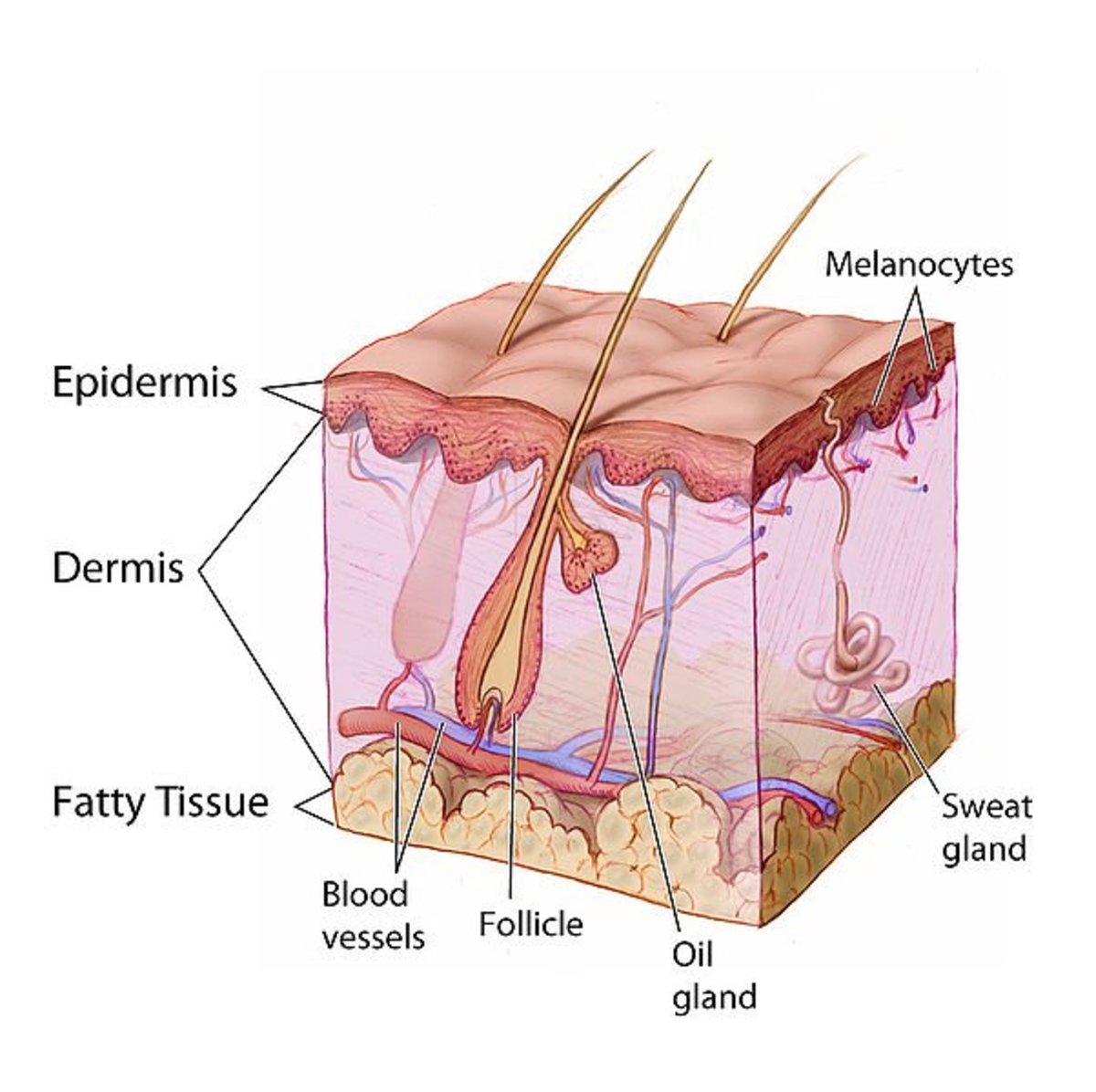How Jamaican Class System Triggered a Wide Scale Skin Bleaching Phenomenon
Has the Class System in Jamaica Scarred Those of the Darker Shade?
If you should ask whether or not the class system that still exists today in Jamaica has had a profound effect on the typical dark-skinned Jamaican the answers you get will vary. Jamaica on a whole while not segregated is largely an insulated society as your chances at success are often times than not based on the shade of your skin.
This article is not about the wrongs or rights about skin whitening but about how an overwhelming perception has brought about a entire movement of people whose desire is to alter the tone of their skin.
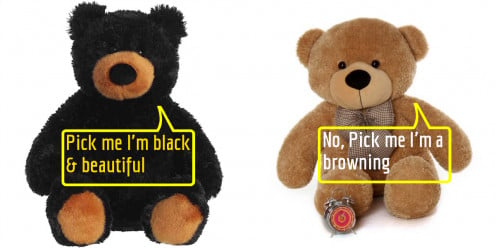
Jamaican Class Prejudice Triggered the Jamaican Skin Bleaching Phenomenon.
Before we even delve deep into the Jamaican scenario of why Jamaicans see skin lightening (skin whitening, skin toning, skin bleaching or whatever the latest terminology is) as a way to be accepted within their peership let's look at a few facts from around the world:
- In a number of African countries, between 25 and 80% of women regularly use skin whitening products.
- In Asia, this number comes in at around 40%.
- In India, specifically, over half of skin care products are sold for skin whitening purposes
Do Jamaicans Consider the Dark Skin Shade Inferior?
Yes they do especially among the lower tier of the society; Upper echelons of society are usually and always have been brown men and women (many of whom are mixed descendants called mulattoes of former slave masters).
In order to shed some light on the unspoken histrionics of Jamaica's entrenched class system please take into perspective the following pointers needed to establish this point:
- Mid 20th Jamaica business owners refused to employ dark skinned Jamaicans to work in the front offices of banks and corporate entities
- Criminal elements who were convicted and sentenced to serve time in prison were usually if not always of the dark skinned kind so people's minds were politically engineered to fear dark skinned people as harmful and violent
- Class prejudice dictates that brown people were the owners of capital and low skilled jobs were allotted out to those of the lower ranked dark skinned people
- Rastafarians back in the day were largely of the dark-skinned hue and were dreadfully feared as they were referred to as Blackheart men and with such a high concentration of dark skinned followers were seen as a threat to social stability and regarded as dissidents and rejects of Jamaican society
- Brown skilled people were (are) often held in high esteem irrespective of their educational achievement and were elevated to higher positions in government irrespective of the higher qualifications of their black skinned counterparts
- Management positions in government and the private sector were reserved for the light skinned Jamaicans. Entry level positions and in some instances supervisory roles were assigned to the darker spectrum of the working class
- Opportunities for wealth creation and social upliftment were suppressed and withheld from dark skinned people. Owning a house, owning a car, starting a business, being admitted into ivy league high schools or being able to qualify for a bank loan were near to possible for the average dark skinned Jamaican
- Television ads for luxury items and products such as housing, real estate, investments and loans, cars and trendy household items that were aimed at the middle and upper classes were represented by light skin persons in these ads
- Beauty pageant titles were only reserved for brown skinned women with straight hair under the false representation of our motto "Out of Many One People". These women were usually called "rich man pickney" or uptown browning using Jamaican parlance
- The para-military systems setup and disguised as the Jamaican police force and national security services were set up to protect the residences, businesses places, the children and other precious assets of the browning class (and I can bet Betty the brown cow that this institutionalized approach is still in place to this very day).
So you see due to the backra minded prejudicial class system that dominated the mindsets and social fabric in post colonial Jamaica, life as a whole wasn't and hasn't been kind to the progress of the ordinary dark-skinned Jamaican.
In a number of African countries, between 25 and 80% of women regularly use skin whitening products. In Asia, this number is around 40%. In India, specifically, over half of skin care products are sold to whiten skin.
Sourced from: Wikipedia.com
Aristocratic Classism Does it Still Exists in Modern Jamaican Society?
It's always a given that in Jamaica if you're of brown (not white) complexion, well spoken (well sometimes) with a few letters behind your name you're destined for wealth and riches and often times you're expected to become a big shot one day.
I'll say that in today's Jamaican the majority of the wealth is still being held by the brown class but there are opportunities available for anyone desirable of same.
The one thing that still remains is the "I'm better than you because I'm brown" superiority complex mentality. There are people still holding on to the outdated colonial mindset and belief that being of brown complexion should set you apart from the field irrespective of your background or upbringing.
The psychological that being brown will get you going places much quicker than the average black skinned person is still very much embedded, ingrained, painted and permanently printed in the psychological makeup of a large number of Jamaicans.
It is a perception that has borne itself out as a reality that many a Jamaicans continue to face daily in the modern era.
In light of the foregoing although this lingering mindset still prevails there are solid opportunities (usually through uplifting oneself through higher education) for moving up the social ladder. However, the silent narrative of a consistent color code belief system based on early post colonial mindset still remains.
This residual mindset of early post colonial Jamaica still holds on to the "life is a lot lot better if you're brown and living in Jamaica" dogma and how true that is depends on who you ask.
Within the lower ranks of the middle working class and among many uneducated and unskilled Jamaicans this is the belief system and narrative that is still embraced by the masses.
A Few More Skin Bleaching Facts From Around the World
In India, the sales of skin lightening creams in 2012 totaled around 258 tons, and in 2013 sales were about US$300 million.
By 2018, the industry for lightening cosmetics in India had achieved a net worth of nearly $180 million and an annual growth rate of 15%.
As of 2013, the global market for skin lighteners was projected to reach $19.8 billion by 2018 based on sales growth primarily in Africa, Asia, and the Middle East.
Source: Wikipedia.com
Jamaica's Ethnicity Chart (2011)
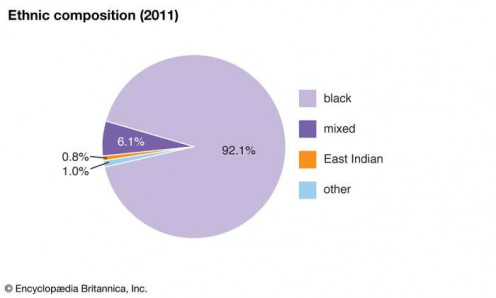
Do You Think Skin Bleaching in Jamaica is Just a Trendy Fashion?
Guess again. While this phenomenon has been called out as a threat against black pride people will say that only the hypocrites would have a problem with skin bleaching as skin bleaching is not solely a problem of having dark skin as many who are light skinned as well have taken up the challenge to lighten their skin as well and no one is pointing that out.
Skin bleaching in Jamaica has now become a part of the entertainment landscape after being a taboo topic for decades.
Does Bleaching Your Skin in Jamaica Open Doors to Opportunities?
Bleaching one's skin certainly finds favour within the same class of people who feels this is the way to be accepted. This is a case of finding acceptance from people within your own class.
You will no longer be teased or mocked among your peers that you're "black and ugly" besides uneducated (yet attractive) women from the area will definitely be the ones finding the men they grew up with more appealing the moment that they start bleaching their skin.
It's highly likely you'll become a hit in the eyes of people who are themselves within the same subset of the living standards to which you belong but if you're seeking acceptance from the establishment be it middle or upper class, it won't happen anytime soon (no welcome committees here).
If you're a public figure choosing to lighten your complexion and you suddenly find yourself moving up the society ladder, it's largely because you're being supported by your own class for example say you were a Vybz Kartel, a Tommy Lee or even a Queen Ifrica (say what now?!).
Peer elevation is the maximum reward for bleaching your skin in Jamaica.
You will not be elevated by society at large if you're a proponent of the bleaching phenomena in Jamaica.
For those who wants to feel better about themselves and find themselves getting that second look from Jenny around the block or being rated as the best Dj of all times then by all means - get your rubbings on.

Skin Lightening in General is it Morally Wrong?
Being of high morality means that one is constantly listening to that internal voice which, if you listen, always tells us what is wrong and what is right, and acting upon the instructions it gives you. ... High moral standards are where you always do what you think is right, not what you can get away with.
But what does all that has to do with bleaching? Can highly moral standards get you that highly sought after peer recognition? Can high morals get the ladies to start giving you those flirtatious glances from across the room? Can it make you the most desirable man or woman in the community? Many Jamaicans will tell you that high morality will never open a single door for anyone in this country.
There's a school of thought that believe skin whitening is based on the want to be accepted and the ill effects of low self esteem. self hate and an inferiority complex.
A few thousand years back the fair skinned woman wide hips were regarded as the prize in the village.
Natural selection in earlier centuries gave the guarantee that your generation will go on if you were lucky enough to breed a light skinned female thus increasing the odds of the survival of your future generations.
In light of the preceding statements this is serving to profess that if this was an inferior complex back then it only now stands to argue that the DNA triggering this inferiority complex instigating man's preference for the lighter shade of the fairer sex and has now been embedded permanently in the human psychological makeup.
In today's society however, people are now looking at the skin lightening phenomenon from a different perspective. For many, lightening your skin is seen as a personal choice regardless of the consequences.
If one is fully aware of the consequences and still yet makes the conscious choice of bleaching one's skin then no one can stop you from making that choice.
Some may argue that at birth we were all born with a lighter complexion so what's the big deal if one were to make the decision to achieve the same complexion that one was born with?
Sounds fair somewhat therefore, choosing to lighten your complexion back to the earlier version of when one was a few weeks old is one's own decision to make.
Skin Lightening Creams are they Safe for Your Skin?
Lightening your skin with certain cancer causing industrial chemical components is harmful and will harm not only your skin but in many instances your internal organs as well.
Examples of these type of dangerous chemicals found in many bleaching creams are as follows:
mercuric iodide, mercurous chloride, ammoniated mercury, amide chloride of mercury, quicksilver, cinnabaris (mercury sulfide), hydrargyri oxidum rubrum (mercury oxide), and mercury iodide.
Skin lightening creams have commonly contain mercury, hydroquinone, and corticosteroids. Because these compounds can induce both superficial and internal side effects, they are illegal to use and market in multiple nations.
However, various chemical studies indicate that these compounds continue to be used in sold cosmetic products, though they are not explicitly declared as ingredients.
Prolonged usage of mercury-based products can ultimately discolor the skin, as mercury will accumulate within the dermis. Mercury toxicity can cause acute symptoms such as pneumonitis and gastric irritation.
However, according to a study by Antoine Mahé and his colleagues, mercurial compounds can also contribute to long-term renal and neurological complications, the latter of which includes insomnia, memory loss, and irritability. (source: wikipedia.com)
Researchers have already determined that these chemicals can and will cause long term damage to the both the skin and internal organs but who is taking the trouble to read these labels if we're in a hurry to look the best with our brightest skin tone?
The Faces of Jamaica
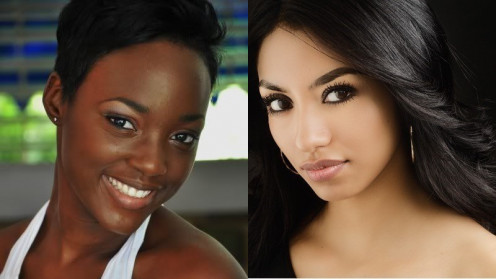
Jamaicans Seeking Alternatives to Harmful Bleaching Agents
I can assure you that the bleaching phenomenon taking Jamaica by storm will not be slowing down any time soon as Jamaicans intent on repurposing their identities are now seeking alternative and natural ways to lighten their complexion.
Don't take Jamaicans for simpletons as people are fully aware of the dangers of using skin bleaching creams that contain harmful chemicals and have therefore started finding alternative methods of naturally and safely lightening their skin tones.
Natural ingredients that are now in great demand for skin lightening are honey, shea butter, lemon juice, coconut oil, goat's milk, papaya, yogurt and aloe vera just to name a few. The use of natural products from your local grocer is far more safer and of course more affordable for the lower income tier of bleaching enthusiasts.
Should you find yourself becoming adamant on lightening your complexion in order to keep up with the Palmers but cannot find the time to mix and match your natural skin lightening ingredients in an attempt to find the true formula that will catapult you to the Peer Elevation platform, there are natural skin bleaching products readily and available for you to buy right off the shelves.
Natural bleaching products do not include any harsh skin bleaching chemicals like hydroquinone or mercury. If you feel that using harmful skin lightening cream is not where you wanna go then here are some naturally infused skin lightening products:
- The use of natural exfoliating antiseptic soap bar to cleanse the face and body, fading out discoloration, hyper-pigmentation and aging sunspot
- Treating the skin with natural beautifying body milk for lightening the skin and treating stretch marks and dark spot removal
- Applying natural multivitamin face cream with amino acids for maintaining skin beauty and natural light toning with retinyl palmitate and ACE vitamins added in this potent anti aging moisturizer that will treat skin aging issues like wrinkles, skin discoloration while encouraging cell growth to promote a glowing, youthful appearance
So in conclusion Jamaicans are proud, happy and are becoming comfortable with the idea of skin bleaching. A light skin fashion trend has taken off in Jamaica and will remain so for some time to come. Rather than conclude that skin bleaching is a derivative of low self-esteem and inferiority complex let's just say that Jamaicans have now made skin bleaching their own irrespective of the mind altering origins of the past.
This content reflects the personal opinions of the author. It is accurate and true to the best of the author’s knowledge and should not be substituted for impartial fact or advice in legal, political, or personal matters.
© 2020 Royan Shaw

